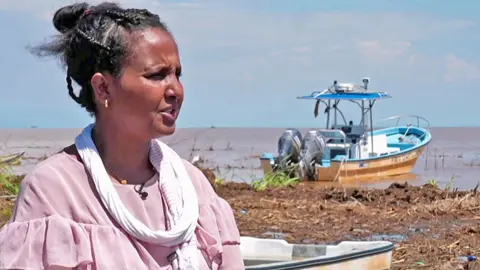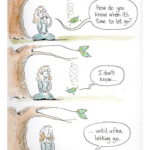The desperation to provide a better life for their families drives countless Kenyans to seek opportunities abroad. Tragically, this yearning often leads them into the clutches of ruthless migrant smugglers, leaving a trail of broken dreams and, in the most heartbreaking instances, lost lives. For the mothers left behind, their grief is a raw wound, and increasingly, that grief is transforming into a potent, righteous anger directed squarely at those who prey on their children’s hopes.
Evidence suggests this anger is a growing force. While statistics on the exact number of mothers actively campaigning against smugglers are hard to come by, anecdotal reports and media coverage paint a clear picture. Women who have lost sons and daughters to treacherous journeys across deserts and seas are finding their voices. They are no longer just mourning in silence; they are demanding accountability.
Consider the countless stories that emerge from communities known for outward migration, like parts of Western Kenya or the coastal regions. Mothers who scraped together meager savings to pay smugglers, only to receive news of their child’s death en route, are sharing their harrowing experiences. These narratives are not just personal tragedies; they are powerful indictments of the smuggling networks.
This anger is fueled by a profound sense of betrayal. Smugglers promise safe passage and lucrative opportunities, exploiting the vulnerability of those seeking a way out of poverty. The reality is often far different: dangerous conditions, extortion, abandonment, and death. For a mother who sacrificed everything to give her child a chance, this deception is unforgely.
Furthermore, the perceived impunity of smugglers exacerbates this anger. While some arrests are made, the complex, transnational nature of these networks makes dismantling them a significant challenge. Mothers see these criminals operating with little fear of consequences, adding to their frustration and fueling their desire for justice.
This burgeoning anger is not just emotional; it’s becoming a catalyst for action. Reports indicate mothers are beginning to speak out more openly, sharing their stories with local media and community leaders. They are warning others about the dangers of using smugglers and urging greater vigilance. While formal organized movements may be nascent, the collective voice of these grieving mothers is growing louder.
Their anger serves as a powerful form of grassroots advocacy. It highlights the human cost of irregular migration and puts pressure on authorities to do more to combat smuggling. It also serves as a stark warning to potential migrants about the risks involved.
In conclusion, the anger of Kenyan mothers who have lost children to migrant smugglers is a palpable and growing force. Rooted in grief and betrayal, this anger is driving them to speak out and demand accountability. While the fight against these criminal networks is complex, the voices of these grieving mothers are a vital and increasingly influential element in the effort to protect others from falling victim to the same tragic fate. Their fury is not just a personal response to loss; it’s a call to action against a cruel and predatory trade.
Email Us on editorial@nnafrica.com













